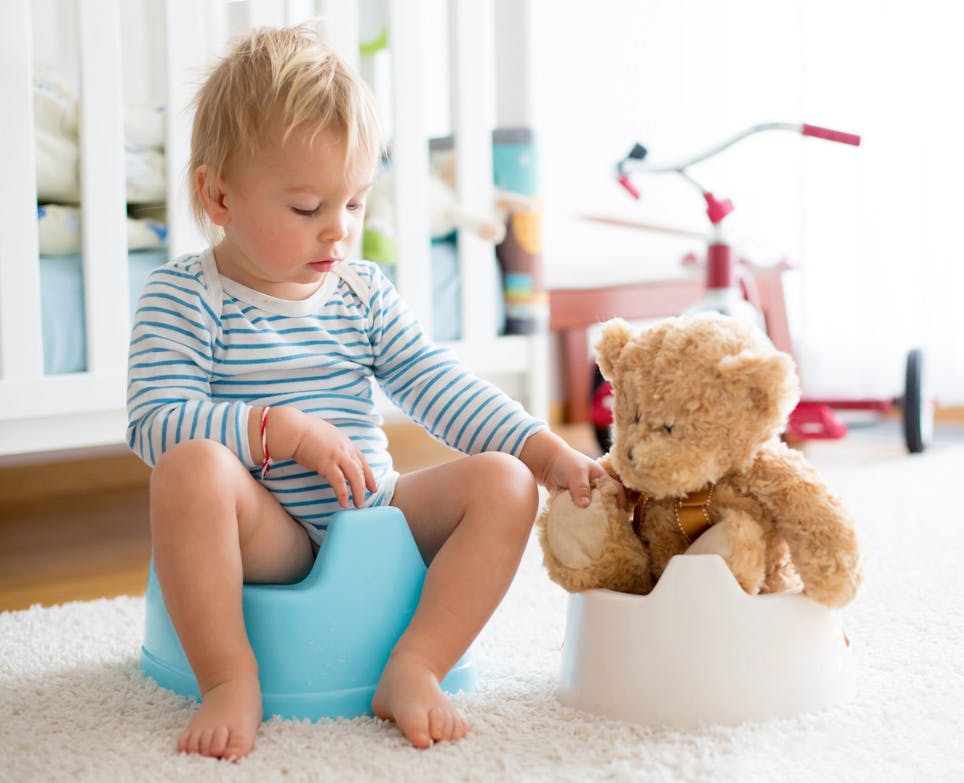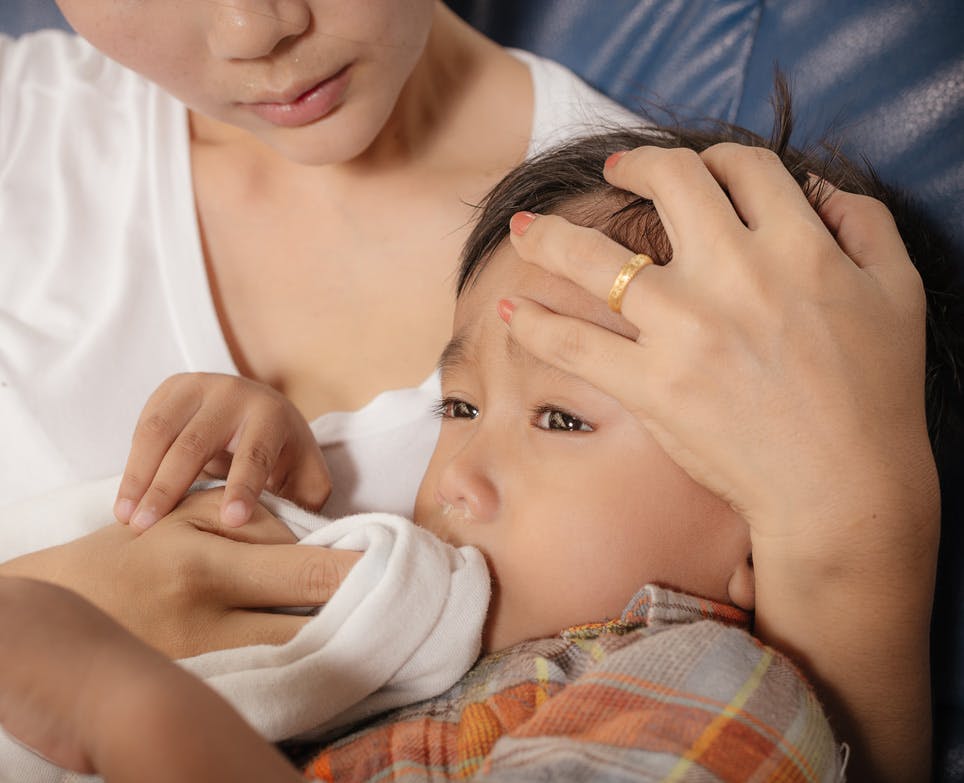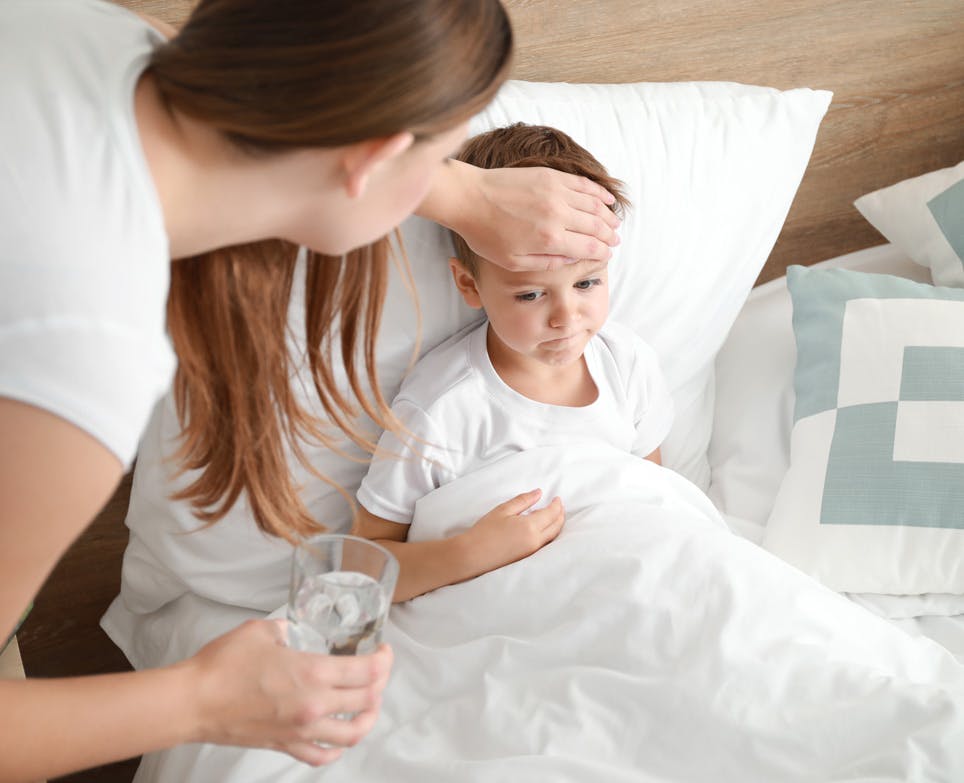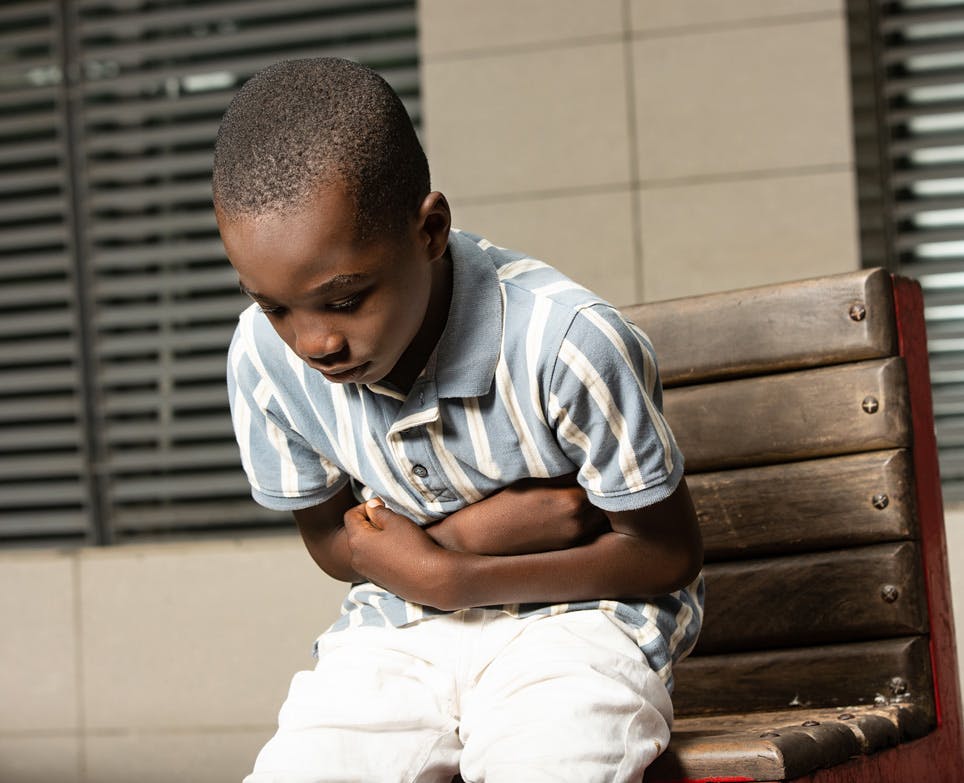
MANAGING VOMITING AND DIARRHOEA IN CHILDREN
Almost all babies bring up a bit of milk without distress. This is normal. But if your baby is suddenly vomiting a lot more, or it occurs frequently over an hour or two, it could be serious.
Vomiting and diarrhoea can cause your child to lose a lot of fluid. This can be very dangerous, especially in hot weather or if they have a fever.
Note: the content of this article does not replace the advice of your healthcare practitioner. If you have any concerns please seek the advice of your healthcare practitioner immediately.

Vomiting and diarrhoea can cause your child to lose a lot of fluid. This can be very dangerous, especially in hot weather or if they have a fever.
Diarrhoea
This is when your child’s stools become much more watery and more frequent than usual. There may be mucus or blood in the stools and they may be very smelly.


Vomiting in babies
Almost all babies bring up a bit of milk without distress. This is normal. But if your baby is suddenly vomiting a lot more, or it occurs frequently over an hour or two, it could be serious. The vomiting may accompany other signs of illness, like fever or diarrhoea.
Tips for babies under six months
- Don’t try to manage it yourself – contact your doctor straight away;
- Continue to breastfeed (small, frequent feeds are recommended);
- If you’re bottle feeding, stop giving formula. Instead, offer oral rehydration fluids or 50ml of boiled water, cooled to room temperature, every hour until you can see your doctor.


Tips for babies over six months
- Continue to breastfeed. You may also offer 50-100ml of clear fluids in between breastfeeds.
- If you’re bottle feeding, stop giving formula for 12–24 hours. Give clear fluids instead. When vomiting and diarrhoea settles, or after 24 hours, recommence usual formula.
- If your baby is on solids, stop for 24 hours, then slowly re-introduce them starting with rice, pasta, potato, toast or bread, or baby rice cereal. The aim is to return to a normal diet within two to three days of the illness settling.
- Don’t give medicine unless instructed by your doctor.
- Give oral rehydration solution (electrolyte solution) which you can get at your pharmacy – either in liquid form, or as sachets of powder that you mix with water. This helps to replenish important minerals such as sugar and salts.
- If oral rehydration fluid is not available, fluids such as clear (without pulp), unsweetened fruit juice or cordial may be used with caution.
See your doctor if your child
- is less than six months old and has vomiting and diarrhoea;
- is less than six months old and has a fever of 38°C or above;
- can’t stop vomiting and can’t keep the right amount of fluid down;
- has bile-stained (greenish) vomit, or signs of blood in the vomit;
- has blood or mucus in their stools;
- goes four to six hours or more without a wet nappy.






